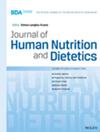Management of inoperable malignant bowel obstruction using the 4-step BOUNCED diet
Abstract
Background
Malignant bowel obstruction (MBO) presents with multiple symptoms. The 4-step BOUNCED diet educates patients to self-manage oral intake according to symptoms. It includes clear fluids, thin liquids, purée and soft, sloppy foods, which are low in fibre.
Methods
This mixed methods single-arm feasibility study aimed to establish if the diet could reduce MBO symptoms in patients with inoperable colorectal and gynaecological malignancies. The secondary objectives were to investigate if it was easily followed, improved quality of life (QOL) and reduced hospital admissions. Patients able to tolerate an oral diet with one or more symptoms (pain, bloating, early satiety, nausea and vomiting) were eligible. Following informed consent, an oncology dietitian took a diet history and determined which step of the diet they needed to follow using a detailed patient information leaflet. Patients remained on the trial for 28 days. Symptom and QOL data were collected on Days 1 and 28 using the Memorial Symptom Assessment Scale and the European Organization for Research and Treatment of Cancer Quality of Life Questionnaire (EORTC-QLQ-C30) questionnaires.
Results
Thirty patients (24 female, 6 male) aged 18–85 years consented from March 2021 to November 2022. Twenty-six participants completed the trial and 25 found the diet very easy or easy to understand. There was a significant reduction in pain from 96% on Day 1 to 63% on Day 28 (p = 0.004). The mean increase of EORTC global health status/QOL was 23.5 points, 95% CI (12.4–32.5) (p ≤ 0.001). There was a significant difference between number of admissions (p = 0.018) and bed days (p = 0.004) in the 28 days prior to consent compared to the trial period.
Conclusions
A modified consistency low-fibre diet is easily followed, may reduce symptoms of MBO, admissions to hospital and improve QOL.

 求助内容:
求助内容: 应助结果提醒方式:
应助结果提醒方式:


